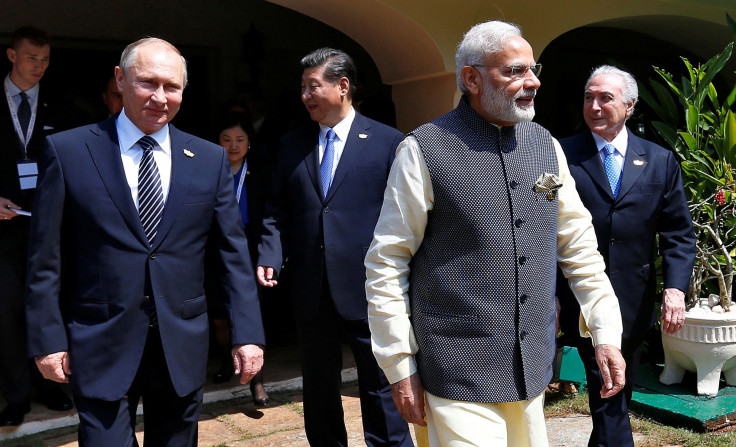US Dollar's Dominance Not Under Threat; BRICS Currencies, Crypto Are Not Alternatives: Bank Of America
KEY POINTS
- The BRICS is working on a common currency in an attempt to ditch the U.S. dollar
- Some nations float the idea of using currencies like the Chinese Yuan as an alternative
- The "USD" is "not about to lose its exorbitant privilege," the BofA says
The global dominance and privilege of the U.S. dollar are not under threat since there are no other currency alternatives available, Bank of America Securities said.
The multinational investment banking division of Bank of America (BofA), which was previously branded Bank of America Merrill Lynch, has strongly rebuffed recent claims that the BRICS' (Brazil, Russia, India, China and South Africa) push for a new currency to replace the U.S. dollar in trading could eventually end the global dominance of the American fiat and legal tender.
The "USD" is "not about to lose its exorbitant privilege" as "no single alternative has appeared," a note penned by BofA's foreign exchange strategist Athanasios Vamvakidi and other analysts read.
BRICS members are expected to discuss the launch of a new currency of the alliance during its August summit. The idea of introducing a new currency and ditching the U.S. dollar is supported by many countries, with several others floating the idea of using currencies like the Chinese Yuan.
Last month, former Russian President Dmitry Medvedev said the fiat currencies of BRICS member countries will not entertain any alternatives in the future.
"In this case, the ruble, yuan, Indian rupee, other currencies of the BRICS countries will have no alternative in the future," the former head of state, who serves as the deputy chairman of the Russian Security Council, said at an event.
Medvedev also underlined that countries under BRICS should think about the digital formats of their national currencies and also about a digital currency issued by the alliance, noting that "the leaders of our organization are now talking about it."
The U.S. Federal Reserve in 2021 warned the rapid rise of cryptocurrencies could be a threat to the status of the American fiat.
In the paper titled "The International Role of the US Dollar," economists Carol Bertaut, Bastian von Beschwitz and Stephanie Curcuru argued that private digital currencies like Bitcoin and Ether, including government-backed digital currencies, could reduce the reliance on the U.S. dollar.
"That said, it is unlikely that technology alone could alter the landscape enough to completely offset the long-standing reasons the dollar has been dominant," they said.
Talks of de-dollarization have become a hot topic over the past weeks, particularly after the collapse of Silicon Valley Bank (SVB), First Republic Bank (FRB) and Signature Bank in March, threatening the financial stability of the country.

© Copyright IBTimes 2025. All rights reserved.






















